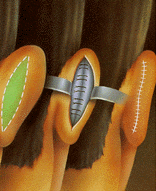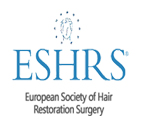- Mon-Sat | 8:00-18:00 Sunday (closed)
- Email : info@harleybodyclinic.co.uk
- Call : 02071679386
Most patients undergo otoplasty, or cosmetic ear surgery, to reduce the size of large ears or have prominent ears “pinned back” closer to the head.
Most otoplasty procedures are performed between 18 and 60-years-of-age. Generally our ears are nearly fully developed by the age of five, allowing for the surgery to be performed. Since school-yard teasing and ridicule can negatively impact a child’s self-esteem, many parents, as often seen seek-out otoplasty for their children at an early age. Of course, ear surgery can be performed to contour adult ears as well, to increase self-esteem and improve appearance.
Though, basic otoplasty information is provided on this website, the best way to get answers to specific questions about you or your child’s needs is to schedule a personal consultation in Harley Body Clinic for better elaboration.

Though thousands of children and adults undergo Otoplasty each year and experience no major complications, the procedure does carry some degree risk. It is important you be well informed of these risks when considering surgery. Harley Body Clinic sees the discussion of potential risks and complications as one of the most important aspects of patient consultation. During your consultation, we will discuss these potential complications with you, listen to your safety questions, and offer instructions on how to minimize the risk.
Potential complications include blood clotting on the ear in a small percentage of patients. If these clots don’t dissolve naturally, they can be drawn out with a needle. Infection in the ear cartilage is also a rare risk with Otoplasty. In some cases, this may cause unwanted scar tissue formation. Such infections are usually treated with antibiotics; though rarely, surgery may be required to drain the infected area.
Children who feel uncomfortable about their ears and want the otoplasty procedure tend to be more cooperative during surgery and happier with the results. Parents should not insist their child undergo otoplasty. In the initial consultation with Harley Body Clinic Doctors, we will evaluate you or your child’s ear structure, depending on who’s undergoing the procedure, and recommend a treatment plan. He will also offer instructions on how to prepare for the surgery.
arley Body Clinic typically prefers general anaesthesia in order to allow ample time to get the most natural result. In selected cases, however, a local anaesthesia combined with a sedative should be sufficient. In these instances, the patient will be awake but relaxed throughout the procedure.
Cosmetic ear surgery takes about four to six hours to achieve the most natural result by contouring both ears. Complicated procedures sometimes may take longer. The duration of the surgery and the surgical technique used will depend on the issues being addressed. To ensure symmetry and balance, surgery is typically performed on both ears, even when only one appears to protrude. A faint scar in the back of the ear can be expected to remain after surgery, though it will eventually fade with time.

Patients are generally up and around within a few hours of the procedure and allowed to return home soon after. In cases where general anesthesia is used on a child, however, some parents prefer an overnight hospital stay.
You should expect the patient’s head to be wrapped in a bandage immediately after surgery. This is to promote molding and healing of the ears and should be worn for 2-3 days. Eventually the bandage will be replaced by a less-bulky dressing, similar to a headband. It is important the dressing be worn as directed by Harley Body Clinic.
Some throbbing or aching should be expected for the first few days. This pain is generally minimal and well-controlled with medication.
Stitches are usually removed in about a week or dissolve on their own.
Adults typically return to work about five days after surgery. Most children can return to school after seven days or so. Children need to be careful about playground activity, however. The ears will need to be protected from bending and pressure for the first six months.
Though protruding ears is the issue most seek otoplasty to correct, there are a variety of other cosmetic ear issues that can be addressed with plastic surgery as well. These issues include:
In some instances, entire ears can be constructed for those without them due to birth defect or trauma. In these instances, careful consultation with your plastic surgeon is essential. Some cosmetic ear surgeries can leave noticeable scarring. The pros and cons of individual ear surgeries should be carefully discussed and weighed before proceeding.
After healing, many patients experience an increased level of comfort with their overall appearance. Though most patients are very happy with their results, those expecting perfection rather than improvement are often disappointed. Expectations such as perfectly symmetrical ears are not realistic. If you’ve discussed the procedure and your expectations with your surgeon before the operation, chances are, you’ll be quite pleased with the result.
When considering undergoing Harley Body Clinic believes choosing a qualified surgeon to perform it is one of the most important factors. Though it’s hard to believe, not all physicians who perform cosmetic surgery have had formal surgical training. It’s important to research the credentials of all surgeons you consider for your procedure. Harley Body Clinic Doctors are fully trained in Plastic and Reconstructive surgery as well as Otolaryngology (head and neck surgery). He invites potential patients to fully explore his training, experience a personal consultation.


